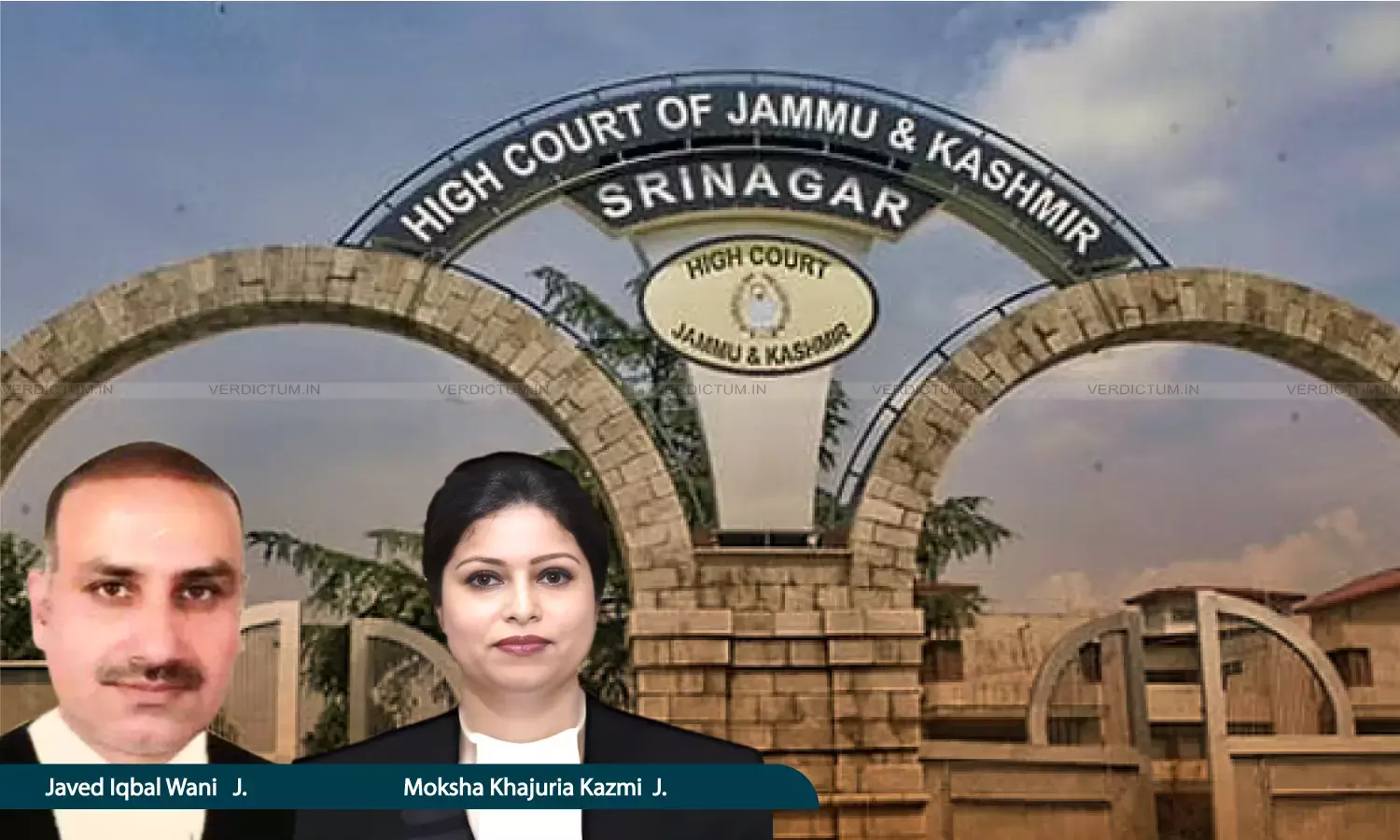Rule 49 BCI Rules Only Prohibits Salaried Employment Alongside Full-Time Legal Practice; J&K And Ladakh High Court Quashes Cancellation of Advocate’s License
The Court held that while a salaried person cannot simultaneously practice as a full-time advocate, the Bar Council acted unreasonably in cancelling the petitioner’s license outright when his application for conversion into an absolute license had been pending prior to his government appointment.

The High Court of Jammu & Kashmir and Ladakh has set aside the cancellation of an advocate’s provisional license by the Bar Council of Jammu & Kashmir, ruling that the action was unreasonable and contrary to the governing rules.
The Court clarified that under Rule 49 of the Bar Council of India Rules, the correct course would have been to treat the petitioner as having lost his right to practice only from the date of his appointment to government service, not to cancel his enrollment altogether.
The Court was hearing a petition filed by an advocate whose provisional license to practice law, first granted in 2019, was cancelled by the Bar Council in August 2024 after he was appointed a Prosecuting Officer. The petitioner argued that the cancellation was unlawful because his application for conversion of the provisional license into a permanent one had been pending for several months before his government appointment.
A Division Bench comprising Justice Javed Iqbal Wani and Justice Moksha Khajuria Kazmi observed that “The said rule, on the face of it, envisages only that a salaried person should not practice as a full-time Advocate and in order to achieve such objective, as rightly pointed out by the learned senior counsel for the petitioner; the respondent no. 1 could have treated the petitioner to have lost his right of practice from the date of his appointment.”
Advocate Syed Faisal Qadri appeared for the petitioner, while Advocate Shah Aamir represented the respondents.
Background
The petitioner had been enrolled as an advocate on a provisional basis in December 2019, following his graduation in law. His provisional license was extended periodically, most recently up to March 2024, subject to submission of his final degree certificate. Upon obtaining the final degree in September 2022, the petitioner applied for conversion of his provisional license into an absolute one.
However, before the Bar Council processed this application, the petitioner was selected and appointed as a Prosecuting Officer in March 2023. Despite being aware of this appointment, the Bar Council cancelled his license in August 2024, citing Rule 49 of the BCI Rules, which prohibits salaried employees from practicing as advocates.
The petitioner challenged this cancellation, arguing that the Bar Council had acted beyond its jurisdiction, without recourse to proper disciplinary mechanisms, and that the delay in issuing his absolute license was attributable to the Council itself.
Court’s Observations
The Court examined the impugned order and found that the petitioner had consistently pursued his application for the issuance of an absolute license well before his government appointment, but the Bar Council failed to process it for over five months. The judges noted that the petitioner could not be penalised for this delay.
While recognising the mandate of Rule 49, the Court stressed that it only requires suspension of practice from the date of salaried employment and not cancellation of enrollment ab initio. The Bench observed that the Bar Council’s action was disproportionate, given that the petitioner’s license had been valid and extended up to March 2024.
The Court held that the cancellation was “unreasonable to say the least in view of the rule position on the subject coupled with the fact that the application of the petitioner for issuance of Absolute/Permanent License was pending with the respondent no. 1 for over a period of five months before the petitioner came to be selected and appointed in the Government Service and for which no explanation has been tendered.”
Conclusion
Accordingly, the High Court quashed the Bar Council’s order and notification cancelling the petitioner’s license, and directed that he be treated as remaining on the rolls of the State Bar Council from his enrollment in December 2019 until his government appointment in March 2023.
The writ petition was accordingly allowed and disposed of on these terms.
Cause Title: John Mohammad Wani v. Bar Council of Jammu and Kashmir & Ors.
Appearances
Petitioner: Advocate Syed Faisal Qadri, Senior Counsel with Advocate Mariya Ashraf
Respondents: Advocate Shah Aamir


